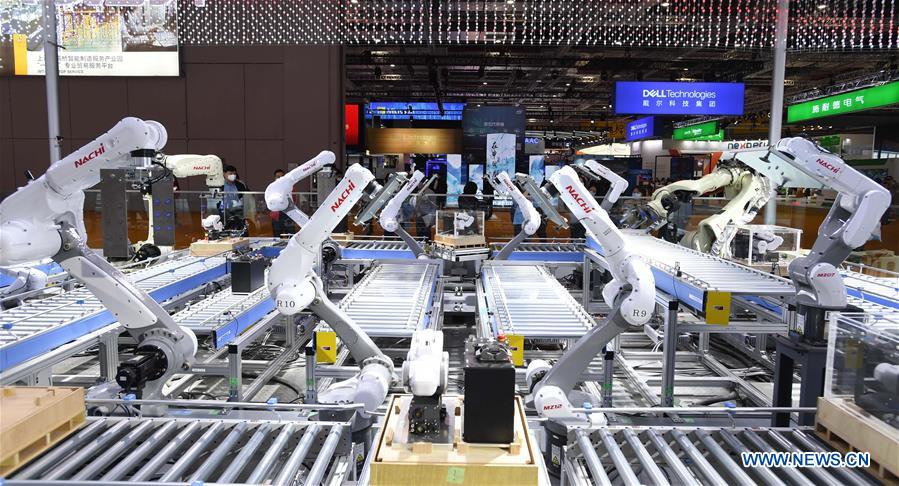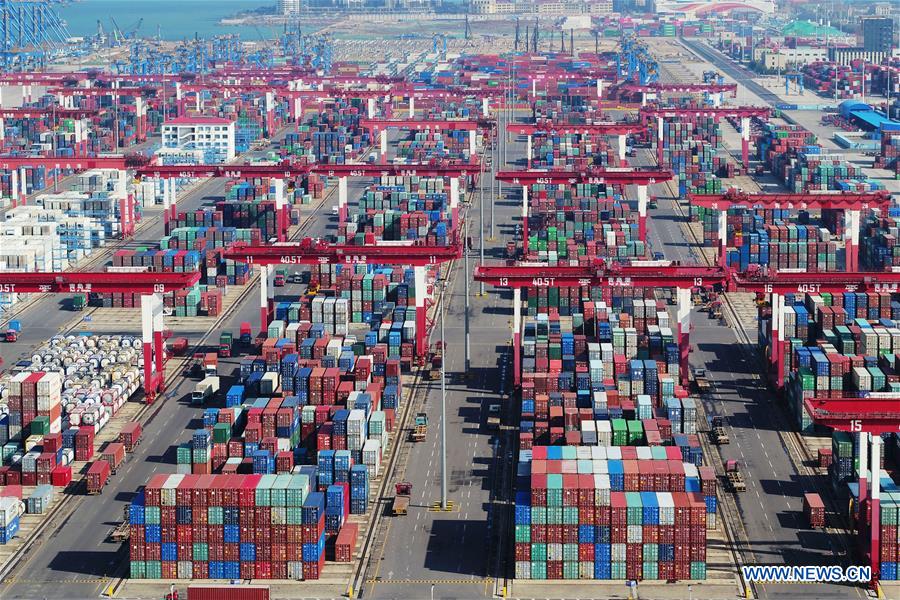Accelerate economic integration for regional prosperity
- By Tom Fowdy
 0 Comment(s)
0 Comment(s) Print
Print E-mail China.org.cn, November 26, 2020
E-mail China.org.cn, November 26, 2020

Chinese State Councilor and Foreign Minister Wang Yi is set to travel to Seoul, South Korea, after completing a two-day trip to Japan where he met Prime Minister Yoshihide Suga. In South Korea, Wang will join Foreign Minister Kang Kyung-wha to discuss the countries' bilateral relationship.
Wang's visits come on the back of all three countries having signed the Regional Comprehensive Economic Partnership (RCEP) two weeks ago, a huge regionwide trade deal which has been described as the largest in history.
China's relationships with Japan and South Korea matter enormously on an economic and strategic level, and now is the pivotal time to strengthen ties with both of them – especially in a global climate of uncertainty owing to geopolitics and COVID-19 disruption.
On the agenda, as has been highlighted in Wang's exchanges with his Japanese counterpart Toshimitsu Motegi, is the promotion of economic integration and free trade as well as resolving any bilateral disputes. In this way, China aims to accelerate progress on a China-Japan-South Korea trilateral free trade deal, as well as its aspiration to join the Comprehensive and Progressive Agreement for Trans-Pacific Partnership (CPTPP), of which Tokyo is a member.
South Korea and Japan represent Asia's two most advanced economies; both are technological giants and manage a number of critical exports in the fields of automobiles and engineering. Unsurprisingly, China is both the largest import and export partner of both countries. Deepening market access, reducing tariff barriers and maintaining supply chain resilience are therefore important issues to promote.
Under the new circumstances, it is necessary for China, Japan and South Korea to deal with challenges together by seeking common interests in promoting economic integration, as well as multilateralism and regional stability. In the midst of COVID-19's grip on the global economy, China is essential to both Tokyo and Seoul's return to growth. This shows an underlying regional reality: Despite the U.S. having a strong influence over the security dynamics of South Korea and Japan, these nations ultimately belong to the Asian regional system and are more reliant on cooperation and commercial ties with Beijing.
Allowing Washington to adopt a cold war mentality against China would be disastrous for all three partners. In such an event, South Korea for example would not only risk losing its largest export markets, but cooperation over security of the Korean peninsula would also be harmed. Stability is a prerequisite for openness, and thus promoting integration will bring benefits to all three parties in the long run. Decoupling is never an option.

During Wang's trips to Seoul and Tokyo, he will be promoting China's longstanding positions on free trade. First, China has already been in talks with South Korea to upgrade the bilateral FTA and this will continue to progress.
Second, reviving talks on a trilateral trade agreement with Seoul, Tokyo and Beijing will also be on the agenda. Such a deal could establish common standards, objectives and a shared way forward for Asia's three largest economies who all rely one another. China's aspiration to join the CPTPP is also part of this agenda. All of these will require market access and intellectual property concessions from China, but now is a time to give and negotiate for the greater good, with China's pledged growing openness.
In addition, a number of bilateral disputes also need to be resolved. China and Japan do not see eye to eye on many things, with historical factors continuing to play a role. However, establishing a stable and prosperous co-existence matters deeply.
In a global climate of geopolitical confrontation, COVID-19 disruption and protectionism, upholding the openness and integration of China, Japan and South Korea remains pivotal to sustaining peace and prosperity in the Asia-Pacific region. The way forward cannot be through cold war style confrontation or decoupling, but by accelerating mutual economic ties and finding a common path.
Tom Fowdy is a British political and international relations analyst and a graduate of Durham and Oxford universities. He writes on topics pertaining to China, the DPRK, Britain and the U.S. For more information please visit:
http://www.china.org.cn/opinion/TomFowdy.htm
Opinion articles reflect the views of their authors, not necessarily those of China.org.cn.
If you would like to contribute, please contact us at opinion@china.org.cn.






Go to Forum >>0 Comment(s)